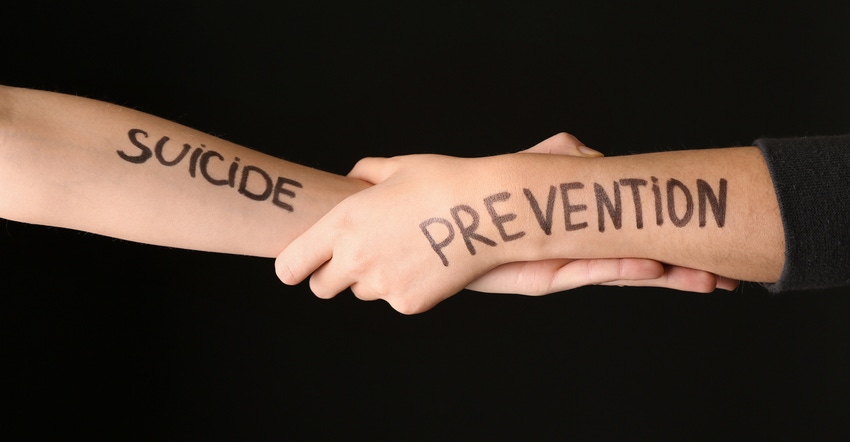October 13, 2020

Mental health on the farm has been a growing concern even before COVID-19 showed up. The long hours, financial stress and physically strenuous work can pressure anyone, and those stresses often lead to thoughts of suicide for ag workers and their employees.
After his county experienced three suicides in three years, Don McMoran, director of Washington State University’s Skagit County Extension office, started working on prevention. “The last one hit me hard,” he says. “I knew and had worked with him. Our families are close. I came into the office the next day and realized this was something that we need to work on.”
About the same time, the Washington state Legislature established a task force to look at ag industry suicides. McMoran and Extension got involved, and in 2019, a pilot program started based in the Skagit County office.
Using pilot funds to start local programs, they worked to educate farmers and farmworkers about suicide prevention when at commodity workshops and trade shows. And now that work will get a boost, with news of a major grant from USDA.
The $7 million Farm and Ranch Assistance Network grant will expand the work done by McMoran and colleagues in Extension to 13 Western states and four U.S. territories.
McMoran recalls those early workshops, where “people would come up to me and talk about how important this education is, and how it would help their neighbor or someone they knew. Nobody says it helped them. There’s still a major stigma about suicide, especially amongst farmers and ag workers.”
The pilot program allowed McMoran to apply for an initial USDA grant that expanded the network to cover Washington and Oregon. In addition to the workshops, the network has websites and social media accounts; distributes printed materials, including flyers; and trains people to see signs of suicidal thoughts in others.
"We give out little first aid kits that include phone hotline information and signs of suicidal thoughts to look for,” McMoran says. “Financial stress, a significant change in routines, and giving away possessions are all indicators.”
Spending $7 million
With the new funding, the group plans to establish an ag-specific phone hotline, staffed by trained personnel familiar with agriculture and farmworkers.
Adds Moran: “We’ve worked with general suicide helplines, and they do amazing, important work. But I don’t believe an average farmer is going to call a general suicide helpline; and if they did, the responder may not understand the specific plight of a farmer. We will have a line so there’s someone on the other end who can relate to what a farmer or an ag worker is going through.”
Expanding the program to cover 13 states and four territories won’t be easy, but McMoran has already established relationships. There are representatives from all of those locations involved in this grant. “I wish the program wasn’t necessary, but I'm glad that I can be one of the people who can help improve things,” he says. “My experiences as a fourth-generation farm kid helped prepare me for this.”
Source: Washington State University, which is solely responsible for the information provided and is wholly owned by the source. Informa Business Media and all its subsidiaries are not responsible for any of the content contained in this information asset.
You May Also Like




